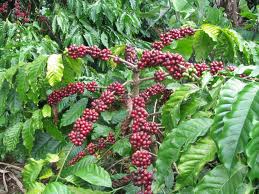
| Vietnam wins the coffee battle by using laws | |
From June 7, foreign invested enterprises would lose the right to collect coffee directly from farmers. It’s clear that by laying down the policy, the state aims to protect domestic companies. However, the policy may harm farmers. According to the Ministry of Industry and Trade, foreign invested enterprises (FIEs) now collect up to 60-70 percent of the total coffee output in Vietnam, about 1.3 million tons. The Circular No. 08 which has been issued by the ministry stipulates that the FIEs licensed to export products can only buy materials from Vietnamese businessmen, who have business certificates or the right to import products and distribute goods, for export, while they cannot develop the collection networks of their own. Meanwhile, Dao Loc Binh, MA, from the Le Hoang Law Firm in Can Tho City, said that the Vietnamese laws do not prohibit FIEs to buy goods directly from farmers to make finished products, process and export the products. FIEs are only prohibited to buy products directly from farmers for export without any processing. Therefore, Binh affirmed that the Circular No. 08 absolutely comes in line with the Vietnamese laws and the commitments Vietnam made when joining WTO. However, Binh said the regulations stipulated in the circular will certainly affect farmers, because their coffee products would go for better prices if they can sell directly to FIEs. Meanwhile, they would make less profit if they have to sell to domestic enterprises. Pham Ngoc Bang, Deputy General Director of Dakman, a joint venture, also said it is farmers who would suffer most from the circulation. A narrow minded policy? The dispute between domestic businesses and FIEs on the right to collect farm produce directly from farmers has been lasting for three years. Domestic firms complained that FIEs have been scrambling for coffee materials, though this is prohibited by the law. This has resulted in the material shortage for domestic companies. This could be the reason why the Ministry of Industry and Trade released the circular to protect the domestic production. Meanwhile, an expert has violently criticized the regulation, saying that this shows the “short sighted vision” of the policy markers. The expert said that Vietnamese companies have met big difficulties not because they have to scramble for materials with FIEs, but because of their bad corporate management. The companies just buy materials for export, while they don’t have long term business plans and cannot prediction the price performance. “The winners would be the ones who have good risk management skills, while the purchase price is not the decisive factor in the battle,” he commented. The expert went on to say that Vietnamese companies seemingly misunderstand about the supply chain. Vietnam mostly provides low cost coffee products, which means that Vietnam’s products are available at the markets for popular consumers, while it does not have strong coffee brands. Therefore, if Vietnam prohibits FIEs to buy coffee directly from farmers, some FIEs may leave the Vietnamese market for other countries. Vietnam mostly produces Robusta, very popular in the world. Therefore, it needs to accept different buyers, or the total output would not be sold out. The expert has predicted the 50 percent decrease in the sale if the new circular takes effects as planned. | |
| vietnamnet |
